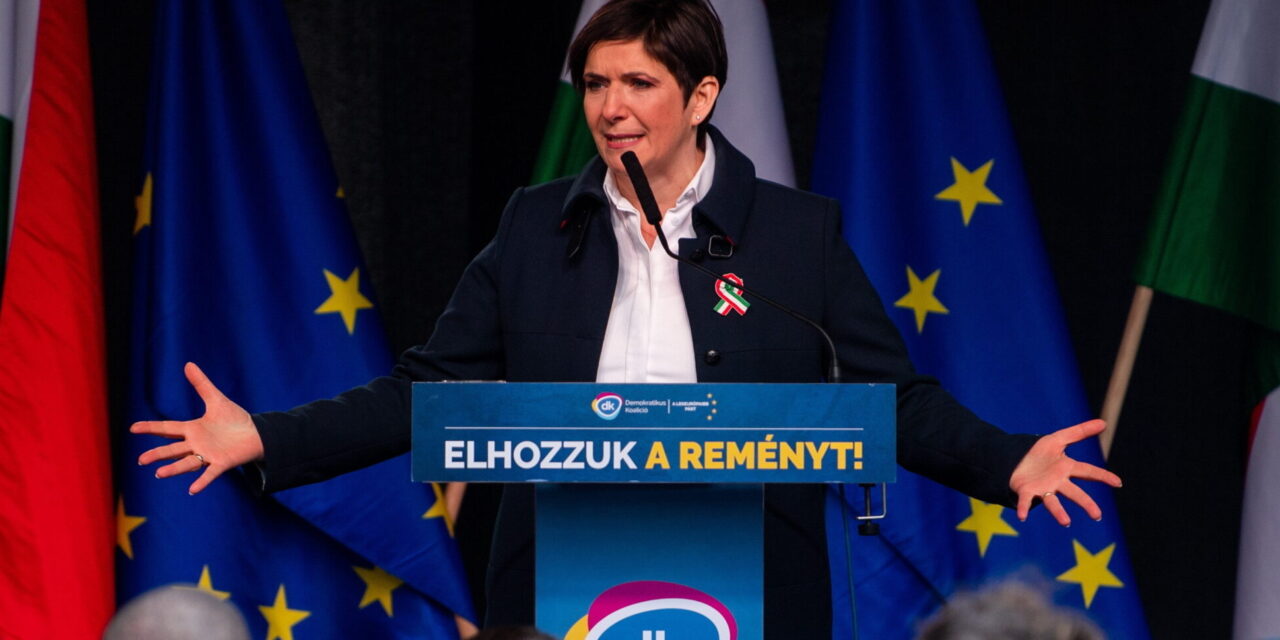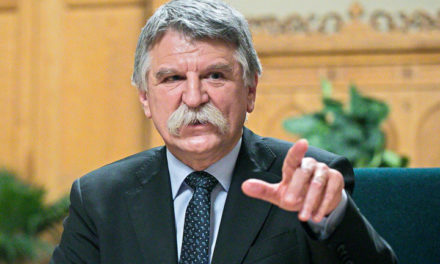The European minimum wage directive does not contain obligations regarding the amount of the minimum wage and the methodology for determining it. Brussels has informed the experts of the member states that it does not require the achievement of the goals contained in the directive, but expects efforts from the EU countries. We show how Klára Dobrev deceived the Hungarians.
By mid-November at the latest, the government, together with trade unions and employers, will fulfill the conditions under which the Hungarian minimum wage fully complies with the European minimum wage directive. The amount of the mandatory minimum wage already meets the most important criterion, since the net amount of the minimum wage in our country is higher than the poverty threshold for people living in single-person households. Last year, the net amount of the minimum wage was HUF 154,280, which is higher than the income poverty threshold, i.e. HUF 145,185.
Expressed in terms of purchasing power parity, the purchasing power of the Hungarian minimum wage in 2022 was 764.5 pps per month, according to Eurostat, which is well above the poverty threshold of 510.8 pps. Those with the lowest earnings could really expect a wage increase, as the amount of the minimum wage increases every year.
The government introduces the European minimum wage, which is terribly embarrassing for the left
The Hungarian minimum wage is therefore still European, despite this, the government has been negotiating for months on the proposal of interest representatives, that is, on the introduction of a system of minimum wages established by sector.
The domestic draft, which aims to more strongly catch up with Hungarian wages, also complies with the non-binding recommendations of the EU.
The European Commission recently informed the representatives of the member states at the expert level that the European minimum wage directive practically contains hardly any mandatory elements, thus guaranteeing the sovereignty of the wage policy of the member states and the autonomy of the social partners, i.e. trade unions and employer interest representatives.
In relation to several points of the directive, Brussels also noted that it is not waiting for the results, the achievement of the set goals is not mandatory. He wants to see efforts from member states to protect the minimum wage.
The directive stipulates two important things, which the government is currently discussing with interest representatives:
• criteria for determining the minimum wage
• and significantly increasing the proportion of employees covered by collective agreements, by encouraging sectoral wage agreements.
The introduction of the European minimum wage will therefore take place as early as 2024, but the left will not participate in the process.
Is Klára Dobrev no longer engaged in one of her most important missions?
The directive was voted by the EP in 2022 and then adopted by the member states. At that time, Klára Dobrev also emphasized that she considers the adoption of the directive to be one of her most important campaign promises, which brought the continent closer to the vision of the United States of Europe.
The left-wing Prime Minister candidate did not tell the Hungarian people the truth about practically anything when he talked about the introduction of the European minimum wage.
Interest representatives have already clearly confirmed to Mandiner that Klára Dobrev will not participate in the work related to the introduction of the European minimum wage.
"As an EP representative of the Democratic Coalition, I am proud to announce that, after three years of hard work, the European Parliament voted for the European minimum wage regulation just a few minutes ago," Dobrev emphasized after the directive was voted on in 2022. According to him, "this means that, like the governments of other EU member states, the Orbán government is also obliged to introduce the European minimum wage regulation, which will significantly increase the Hungarian minimum wage."
In addition, Klára Dobrev is not aware of the domestic laws and the practice of determining the minimum wage. According to his claim, "the European minimum wage regulation will work in practice in such a way that the Hungarian government will no longer be able to arbitrarily determine the amount of the minimum wage. You must take into account the conditions prescribed by the regulation. In other words, Viktor Orbán no longer decides what the minimum wage should be at his whim."
The claim of the politician of the left is misleading because the government does not decide on the amount of the minimum wage. Moreover, the practice of the Hungarian government is fully in line with what Brussels is advocating in all member states. Prime Minister Viktor Orbán and the government emphasize every year that employers and trade unions must agree on the amount of the minimum wage.
Only after the official signing of the wage agreement does the government issue a government decree on the new amount of the minimum wage. This government principle was also shown in practice in 2021, when, due to a protracted dispute between the representatives, they only managed to agree on the minimum wage in January.
In her speech in the European Parliament, despite the long-standing domestic practice, Dobrev told Viktor Orbán and the Hungarian government,
"we promised, we did it. There is a European minimum wage regulation that is binding on governments. I know that the Hungarian Prime Minister goes against everything that is Europe. I know you will face this too. It is our job to ensure that Hungarians also have a fair European wage."
Contrary to the claim of the left-wing EP representative, neither Viktor Orbán nor the Hungarian government opposed the introduction of the European minimum wage. Moreover, based on the directive, the Hungarian minimum wage was European even when Klára Dobrev was still trying to win the voters' trust with western salaries.
Featured image: MTI/Zoltán Balogh













